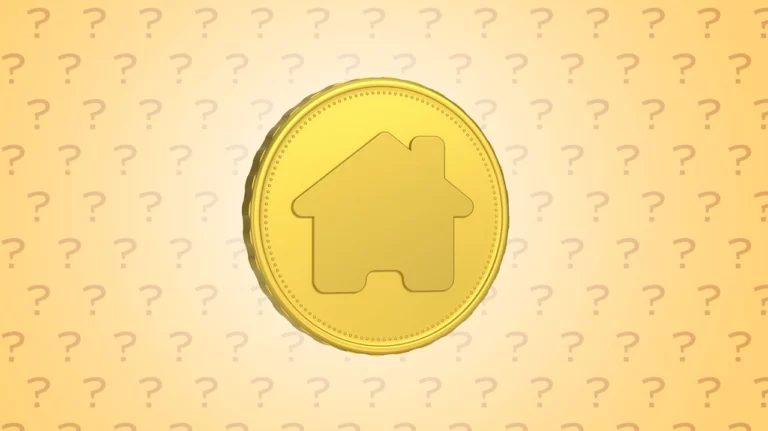Key takeaways
Late spring and early summer are generally considered the best times to sell a house.
Traditionally, low mortgage rates and short supply make it a good time to sell.
While today’s rates are relatively high, low inventory is still keeping sellers in the driver’s seat in most markets.
If you’re considering selling your home, it’s critical to understand the current real estate market dynamics. The volatility that dominated the market amid pandemic-related pressures may have eased, but there are still serious challenges.
For one thing, mortgage interest rates shot up recently, reaching highs not seen in more than 20 years. While they have backed down from the 8 percent threshold seen in October 2023, Bankrate’s weekly survey of large national lenders shows that, as of late May, the average 30-year fixed mortgage rate was 7.17 percent. That still-high reality makes mortgage payments more expensive and is driving more than a few potential buyers to the sidelines — certainly not ideal if you’re on the selling side of the equation.
Complicating things further, home prices are very high as well. April 2024’s nationwide median sale price was $407,600, a record high for the month of April and very close to the National Association of Realtors’ highest-ever monthly median of $413,800, recorded in June 2022. While high prices are typically good news for sellers, they obviously require buyers who can afford the purchase, and the high interest rates are making that harder. Regardless of pricing trends, though, with housing inventory still at a low 3.5-month supply, the nation overall is still solidly a seller’s market.
However, if you were wary of a home sale last year, that may have been wise. ATTOM Data Solutions’ 2023 U.S. Home Sales Report shows that, while prices did rise throughout last year, they did so at the slowest pace in more than a decade.
So, amid all these mixed signals, is now a good time to sell your house? Here are some insights to help you sort through the question.
Should I sell my house now?
There are numerous important questions to consider, both financial and lifestyle-based, before putting your home on the market. If popular opinion is any guide, now may still be a good time to sell despite the evolving market. According to Fannie Mae’s April 2024 Home Purchase Sentiment Index, about two-thirds of respondents — 67 percent — feel it is a good time to sell.
Local market dynamics also play a large part in whether it’s a good or bad time to sell, says Katie Severance, a Realtor with Douglas Elliman in Palm Beach, Florida, and author of “The Brilliant Home Buyer.” Some markets may be riding high, while others remain sluggish. “In some areas, selling now is the right thing to do because prices are still climbing,” Severance says. “In other markets, it might be best to wait to sell until interest rates come down and stay down, which will spur sales once again.”
When is a good time to sell a house?
Historically, spring and summer are usually the best times of year to sell a house. But beyond seasonality, there are many factors that might make selling your home a wise decision. Often the reasons are based on financial calculations, cost of living expenses and other considerations, but there may also be other factors that make selling your home the right choice. These include:
If rates are low
This is not the case currently, but low interest rates entice more prospective buyers to enter the market, which is advantageous for sellers. An increased number of buyers shopping for homes often leads to bidding wars and drives up home prices, meaning you can likely sell your home for a solid profit.
If supply is short
A shortage of housing inventory — which is the case currently — also drives up demand and prices for available homes. What’s more, when housing supply is low, homes on the market tend to sell faster.
If you’re ready to downsize
Downsizing may be a more budget-friendly choice than continuing to maintain a larger, costlier home. For older homeowners, downsizing may even be a necessity: “If you can’t handle the stairs anymore, or if there are more repairs than you can manage, it may be a good time to sell,” says Rick Albert, a broker and director of business development for Lamerica Real Estate in Los Angeles.
If you need to relocate
If you’re relocating to a new state for a job or want to enjoy your retirement in a new area, and you need the profits from the sale to put toward your next place, selling may be unavoidable. “The time to sell is when you need to sell,” says Severance. “It’s a no-brainer to sell if you have somewhere to go.”
When is a good time to wait?
Here are some common factors that might make prospective sellers hold off on listing their home for sale:
If rates are rising
Rising mortgage interest rates often mean a smaller pool of buyers who can afford the price you want. Selling a home isn’t free, so if you can’t maximize your price, you might want to wait.
If you’ve recently refinanced
If you recently refinanced your mortgage, it may not make financial sense to sell just yet. You may actually lose money by doing so, when considering the closing costs and other fees typically paid as part of the refinancing process.
If you’re upsizing
The cost to purchase a new, bigger home may be unaffordable, particularly in a hot market. Don’t get in over your head — take the time to be sure your finances can accommodate the type of home you want. Bankrate’s home-affordability calculator can help you crunch the numbers.
If your home is in poor condition
Got a long list of repairs waiting to be completed around your home? You may want to postpone selling until some of the work can be done. It’s important to show your home in its best light in order to land the most favorable offer possible. If the home is in disrepair or there’s unfinished work, you are less likely to get a good price.
If you have no game plan
If you’re simply trying to time the market to make a profit and have no plan for after your home is sold, it may be best to wait. “It doesn’t make sense to sell if you don’t know what your next play is,” says Albert. “Where are you going? Where is that money going to be spent? If you don’t have a plan, then you shouldn’t sell.”
What about the NAR lawsuit?
There are also upcoming commission changes to consider when deciding whether to sell now or wait. New rules are set to take effect at the end of the summer as a result of a federal lawsuit settlement involving the National Association of Realtors and several large brokerages.
Longstanding tradition has held that a home seller paid the commission fees for both real estate agents in the transaction, their own and their buyer’s. But under the new rules, a buyer might be responsible for paying their own agent, which could save the seller money. However, these changes have not yet received final court approval, and waiting for them to take effect could be risky — and would mean missing out on prime selling season.
What if there’s a recession?
According to Bankrate’s most recent Economic Indicator Survey, the U.S. economy has a 33 percent chance of entering a recession by early 2025. While that is very far from a sure thing, it’s worth asking: Should you sell your house during a recession? Or even just before one?
The answer really depends on your personal circumstances. “If you’re concerned a recession is coming, it’s generally better to sell now instead of waiting,” says Jade Lee-Duffy, a San Diego–based broker. However, “selling during a recession might be beneficial if you’re looking to downsize or rent. This could cut your overall costs, and you could put the proceeds into a retirement account, go on vacation or invest.”
Remember, recessions typically bring with them job losses and general belt tightening, which can severely limit the number of house-hunters looking to buy. More buyers will be able to afford a home, and qualify for a mortgage, before a recession than after.
Tips to sell your home
If your answer to “should I sell my house now?” is yes, here are some steps you can take to get the best deal possible.
Find a good local agent: Advice and guidance from a professional real estate agent can be invaluable, particularly amid a hot or unpredictable housing market. Take the time to interview several candidates in your area, and ask friends or family members to recommend agents they’ve had a good experience with. “A Realtor can help you create a game plan to get your home organized and in shape to present it in the most favorable light,” says Jen Horner, a Realtor with Masters Utah Real Estate.
Make repairs if needed: To land the best offer for your home, know what needs fixing first. “Sellers need to understand that they only have one chance to make a first impression,” Horner says. “Your Realtor can walk the property with you and make suggestions for preparing your home to hit the market.”
Declutter and stage the interior: You should also make an effort to tidy your home, allowing prospective buyers to see the spaces clearly. “Less is always more,” she says. “The fewer items in a room, the larger it will feel. Remove any personal items and unnecessary furniture.” If tidying is not enough, consider hiring a home stager. “Staging can help show the buyer how to optimize the space.”
Add curb appeal outside: Your home’s exterior is another part of making a good first impression, and it’s worth freshening up the curb appeal before buyers see it. That can include upgrading landscaping and walkways, or even something as simple as a fresh coat of paint on the front door.
Alternative ways to sell
If you need to sell your home quickly and don’t have time for the often-lengthy process of a traditional sale, iBuyers and cash homebuying companies may be worth considering.
An iBuyer — Opendoor and Offerpad are two of the biggest — typically makes an offer on homes within 24 to 48 hours. If you accept it, the entire process can often be completed within a few weeks or less. Cash homebuyers also allow you to sell a home remarkably fast, sometimes in as little as one week, and they usually buy as-is, meaning there’s no need to make repairs at all.
Before proceeding with either method, though, it’s important to understand one major downside: While you gain speed and convenience when you sell to these companies, you sacrifice profit. They usually offer much less money for your home than you could get through a traditional sale. And iBuyers may charge steep fees as well, so be sure to read the fine print before signing anything.
Bottom line
Deciding to sell your home, whether now or later, is a major decision that requires careful consideration. Your future plans and goals should be a significant part of the equation, as well as your financial needs and the realities of the local market in your area. If you decide to proceed with listing your home, working with an experienced real estate agent who knows your community well can increase your chances of a smooth (and lucrative) sale.
FAQs
Is it a good time to sell a house?
Deciding whether to sell your house depends on your personal circumstances and the specific dynamics of the market in your area. “It depends on where you are selling,” says Katie Severance, a Florida Realtor. “Interest rates are up, causing prices in some markets to go down, and yet in other areas, prices are still climbing. It’s all geographically driven.” If you need to sell now, whether it’s a good time or not, an experienced local agent can guide you through the process.
What are the hardest months to sell a house?
Typically, spring and summer are considered the best times to sell, when there’s the most activity from buyers and the most listings entering the market. The worst times to sell are typically the dead of winter, when bad weather keeps people off the roads and holiday planning occupies their minds. December, January and February are probably the hardest months for home sellers — but activity picks up again in the spring.
Should I sell my house now, before there’s a recession?
Recessions mean belt tightening and potential layoffs. If your area is hard-hit by job losses, the number of qualified buyers will be severely limited — if you’re concerned, it might be best to sell before that (potentially) happens. However Bankrate’s most recent Economic Indicator Survey shows only a 33 percent chance of a recession.
Do I pay taxes when I sell my house?
If you make a very substantial amount of money on the sale of your home, you may be subject to capital gains taxes. The exact tax rate you’ll pay is impacted by various factors, including how much of a profit you make, how long you’ve owned the home, your marital status and more. You’ll also have to pay any outstanding property taxes still owed at the time of sale, and many states have a real estate transfer tax that may be owed as well.







